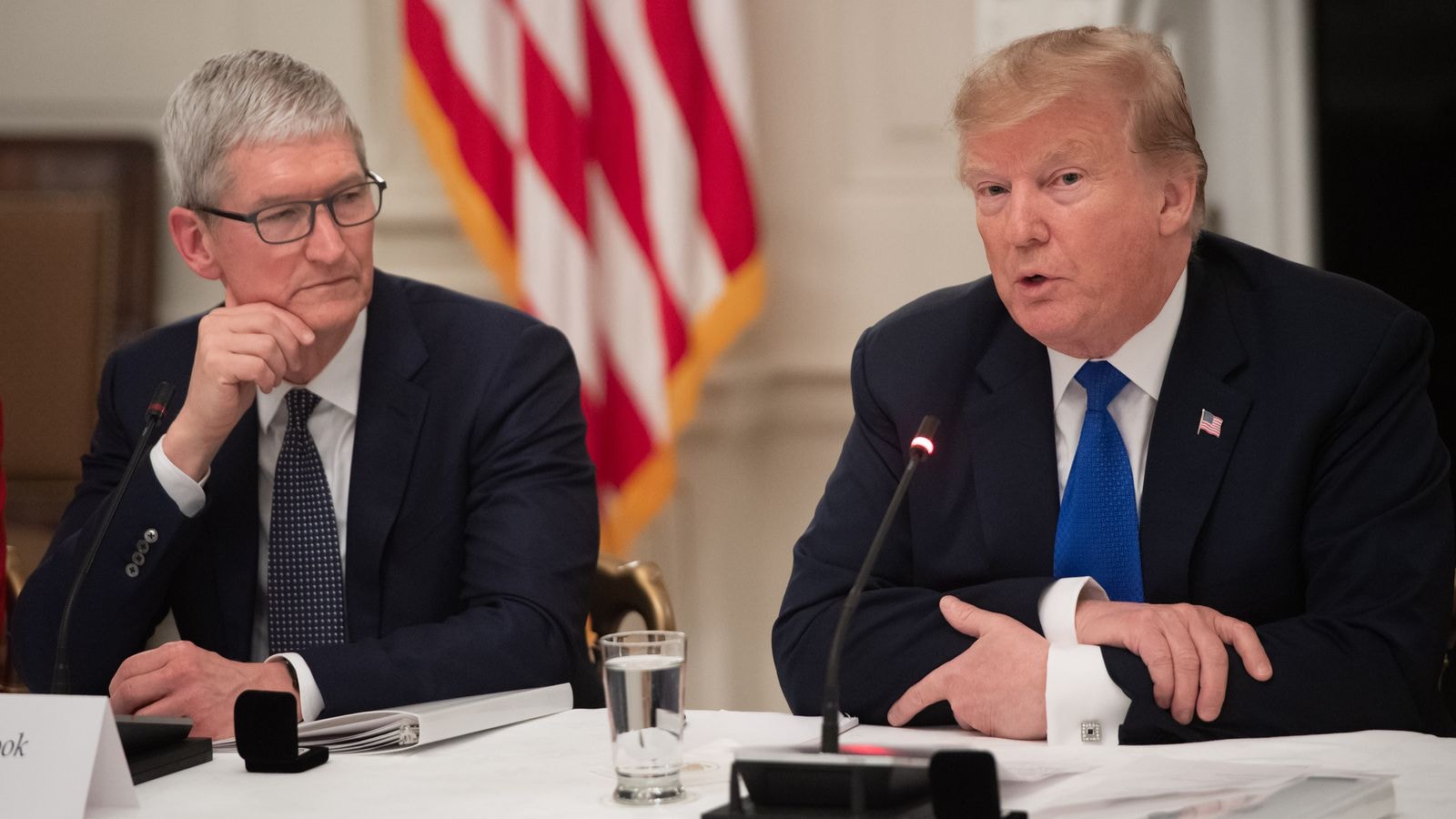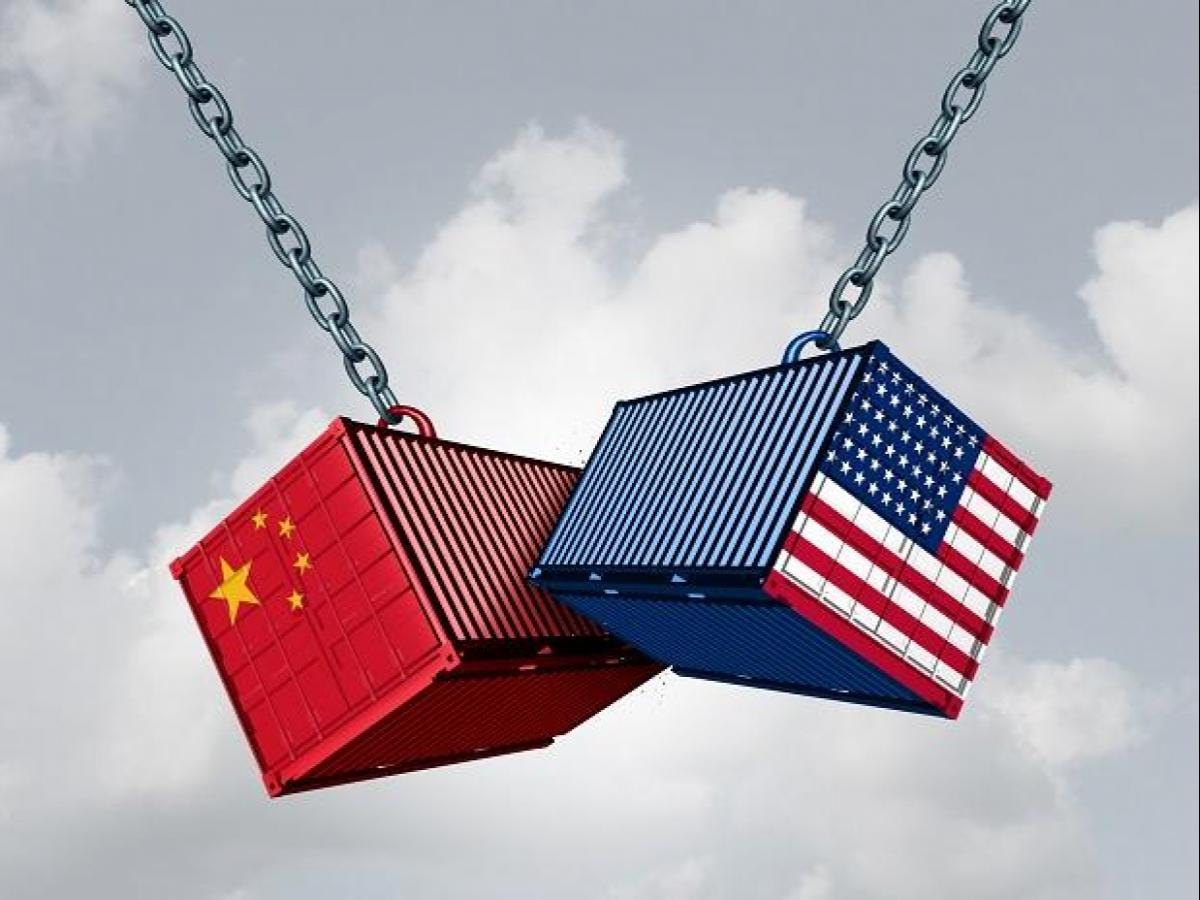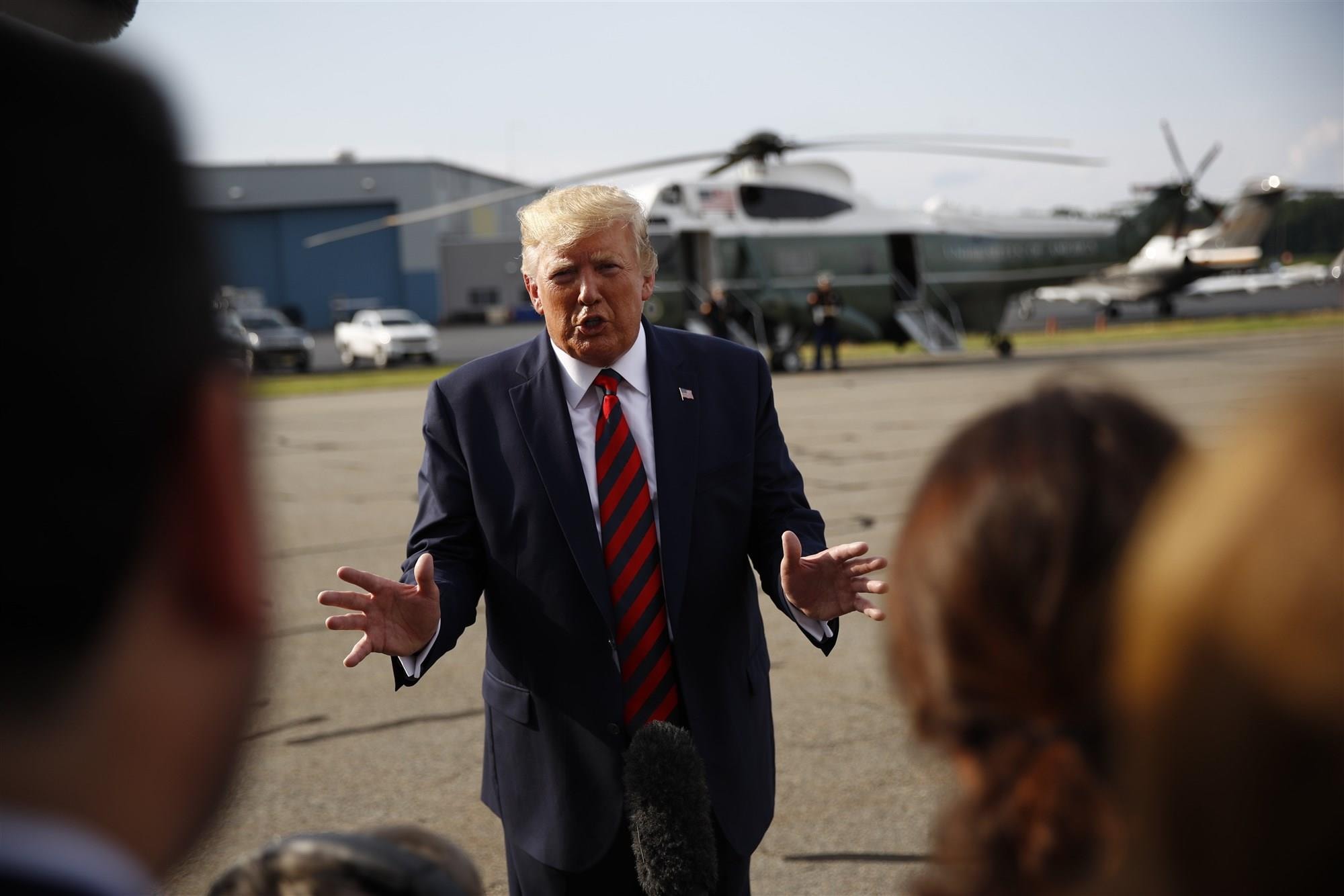America 'hesitates' in trade war with China?
(Baonghean) - The US will consider changing the additional 10% tax rate on imported goods from China worth 300 billion USD - this is the information just given by President Donald Trump when returning to Washington after a 10-day vacation in New Jersey.
Although Mr. Donald Trump appeared tough when saying that "the longer the trade war lasts, the stronger America will be", analysts said that the announcement to review the tax rate, along with the previous decision to delay imposing taxes on some products, shows that President Trump's "close fight" tactic with China is not easy to implement..
From the story of iPhones...
President Donald Trump explained that the consideration of changing the additional 10% tax rate on 300 billion imported goods from China was taken into account after the President had a discussion with Mr. Tim Cook, CEO of Apple, about the impact of tariff measures with China as well as competition with the Korean electronics group Samsung.
President Donald Trump called Mr. Tim Cook’s argument “very convincing.” Since the trade war between the US and China broke out, Apple has been expected to become a “cannon fodder” with huge losses, while its biggest competitor, Samsung of Korea, will take advantage of this opportunity to “break out.”
 |
| President Trump considers changing additional tariffs after talks with Apple CEO. Photo: Getty |
While most of Apple's products such as iPad tablets, MacBook laptops, Apple Watches, and especially iPhones... are assembled in China and are subject to an additional 10% tax, Samsung is mainly produced in Korea and Vietnam and is almost unaffected by the war between the two "giants".
The additional tariffs would reduce Apple's global competitiveness because setting up a supply chain for mobile phone production is extremely complex.
While Apple could consider building new manufacturing facilities outside of China, the process would take years, and would hamper Apple's ability to deliver tens of millions of iPhones to the market each year.
An additional 10% tariff would increase the price of an Apple phone by about $70 and an Apple laptop by $120.
In the event that consumers do not consider switching to a phone other than the iPhone, the most common reaction when faced with such a significant price increase is to prolong the replacement period of the new product, significantly changing the Apple "ecosystem" which is built on the foundation of excitement and willingness to buy new products from the community of "bitten apple" lovers.
It is worth noting that the tax increase is not only a “hard blow” to Apple, but also to the US technology sector in general. Over the past two weeks, some of the largest US technology companies such as Apple, Microsoft, and Intel have sent petitions to US Trade Representative Robert Lighthizer to warn of the consequences for the technology industry - which is considered the “heart” of the US economy.
TV screens and gaming consoles are even more affected than iPhones, as their margins are very low. The additional 10% tax increase almost completely eliminates the competitiveness of brands that depend on supplies from China.
...to the "dark side" of the war
When announcing that he would consider changing the additional 10% tax on Chinese goods based on Apple's "compelling arguments", US President Donald Trump did not forget to reiterate his strong belief that "the longer the trade war lasts, the weaker China gets and the stronger we get", and affirmed that China is paying the price for the US's increased tariffs, while American consumers, workers, and companies are not harmed.
In a speech to reporters at the White House, Mr. Donald Trump also dismissed concerns about the risk of economic recession due to the impact of the prolonged trade war between the US and China.
 |
| The war with China is negatively impacting the US economy. Photo: Business Standard |
But looking back at last week, when Mr. Donald Trump announced that he would postpone the imposition of tariffs on half of the total 300 billion USD worth of imported goods from China until December 15, people have vaguely noticed that something is wrong if the US continues to "intensify", and Mr. Donald Trump has to "camouflage" that instability with the reason of "avoiding impact on the consumer market when the Christmas season is approaching".
But to economists, if something is wrong with the US economy, it must be proven by convincing, measurable evidence.
And that evidence was interpreted from the figures of a report just released on August 16, according to which 79% of manufacturing enterprises and 60% of service enterprises admitted that the tax increase had increased input costs of enterprises, pushed up prices and reduced profits of enterprises compared to a year ago.
The increased input costs will be passed on to consumers, or cut into profits, or both. So it is clear that American consumers are paying more for products imported from China or products with components imported from China.
Another “dark side” of the trade war with China that the US may not yet acknowledge is that the US job market is being negatively affected. The response of business owners to the war with no end in sight is to carefully consider spending and hiring plans.
The retail industry, which is already seeing record store closures, is even counting on the possibility of further job cuts when the tariffs take effect, scheduled for September 1.
Data from the US Department of Labor shows that in June, only 7.3 million job opportunities were created compared to 7.6 million in November 2018 - when the US-China trade war was just beginning.
 |
| President Trump dismissed the risk of an economic recession due to the trade war with China. Photo: AP |
Analysts explain that the impact on the US economy is inevitable, and that it is an unavoidable part of the strategy of "hurting yourself to be able to hurt your opponent more".
But the damage to the US economy appears to be exceeding President Donald Trump's previous calculations, as calls from the business community for the government to quickly find a solution grow louder.
In the latest announcement, White House Economic Advisor Larry Kudlow said that the US and China are trying to resume negotiations, and if the phone calls between the two sides achieve good results in the next 10 days, the Chinese delegation may come to the US. With these moves, public opinion has reason to doubt that the US has "hesitated" a bit in the trade war with China.


